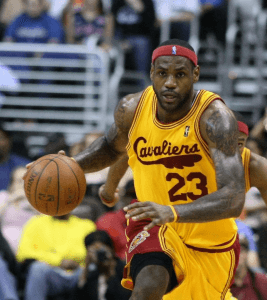On February 1, 2016, Solid Oak Sketches filed suit in the United States District Court Southern District of New York against Take-Two Interactive for copyright infringement claiming unauthorized reproduction of tattoo designs. Solid Oak Sketches obtained the rights to the tattoos at issue by agreeing to pay royalties to the five tattoo artists who authored them. Take-Two Interactive owns Visual Concepts who is the creator of the videogame “NBA 2K16,” a basketball simulation game. It is the seventeenth installment and is advertised as being the “most true to life NBA experience to date.” Take-Two Interactive achieved this level of realism by ensuring the players looked as close to their real life counterparts, tattoos included. The game was released on September 29, 2015 and over four million copies were shipped out in the first week of sales. The high quality depiction of the tattoos has been advertised as a major improvement in the new installment.
The tattoos at issue in this infringement action belong to LeBron James, Kenyon Martin, Eric Bledsoe, and DeAndre Jordan. Even though the tattoos were depicted in earlier versions of the game, the suit only applies to NBA 2K16 because Solid Oak Sketches did not have rights to the tattoos at the time of the earlier installments of the videogame. Upon discovering Take-Two’s allegedly infringing use, Solid Oak Sketches attempted negotiating with Take-Two to no avail.
The issue at hand, whether tattoo designs are copyrightable, has never been expressly decided but this is not the first time the issue has arisen in recent memory. In 2011, tattoo artist Victor Whitmill sued Warner Bros. to stop the release of “The Hangover 2,” claiming copyright infringement over the use of Mike Tyson’s face tattoo. The case was settled along with a similar case brought by a UFC fighter’s tattoo artist against videogame publisher THQ for copyright infringement.
There is little question as to whether tattoos can be copyrighted. 17 U.S.C. §102(a) provides copyright protection for original works of authorship fixed in a tangible medium. Regardless of the canvas, a work receives copyright protection as soon as it is completed so long as it is original and fixed. The judge in the now settled THQ case reiterated this point but an opinion was never issued.
The tattoo designs in question include a picture of a child, a crown with butterflies, and a script with a scroll. As such, Solid Oak Sketches states the tattoos depicted in NBA 2K16 “easily satisfy” the originality requirement. On the other hand, it is said that tattoo appropriation in an expressive work is de minimus non curat lex (the law cares not for small things). Regardless, awards have been given for the infringement of tattoos. For example, the tattoo artist in the THQ case received $22,500. In this case, Solid Oak Sketches is claiming the tattoos used by Take-Two Interactive are valued at over $800,000.


